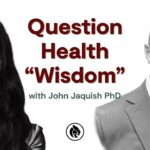*****
Summary of Transcript:
The current evidence suggests intermittent fasting is a sub-optimal dietary approach for maintaining or enhancing muscle mass and quality. Intermittent fasting has become popular based on initial studies conducted on mice that showed that time-restricted feeding reduced body weight and increased lifespan. However, further research suggests intermittent fasting offers no additional benefits beyond calorie restriction. Intermittent fasting may lead to reduced calorie intake, which could result in weight loss, but it may also lead to the loss of muscle mass, which could be harmful. Additionally, the mechanism by which intermittent fasting is thought to activate autophagy in cells may not be sufficient in humans, as mice have vastly different metabolic rates. Overall, intermittent fasting may do more harm than good and should not be promoted as a means of weight loss or improving health outcomes.
*****
Summary of Description:
The current research suggests that intermittent fasting can do more harm than good, as it can lead to losing lean muscle mass. Clinical guidelines do not promote it, and some medical doctors warn of the dangers. The video provides links to research papers, a discount code for supplements, and an opportunity to donate to a clinical study. However, viewers are advised to consult their medical practitioner before using any products or services discussed on the channel.
*****
Intermittent Fasting: Is it Doing More Harm than Good?
Intermittent fasting has gained popularity as a way to lose weight, improve health, and boost longevity. However, recent research shows that it may not be the best approach. In this article, we’ll explore the risks associated with intermittent fasting, what the clinical guidelines say, and why experts caution against this trend.
What is Intermittent Fasting?
Intermittent fasting (IF) is a method of eating that involves periods of fasting followed by periods of eating. There are different types of IF, but the most common ones are:
– 16/8 – where you fast for 16 hours a day and eat within an 8-hour window.
– 24-hour – where you fast for 24 hours, once or twice a week.
– 5/2 – where you usually eat for 5 days and restrict calories for 2 days.
The idea behind IF is that it allows the body to burn fat for fuel instead of relying on glucose from carbs. This, in turn, leads to weight loss and other health benefits.
What are the Risks?
Despite its popularity, IF may not be the best approach for everyone. According to recent research, IF may:
– Increase the risk of muscle loss – One of the primary concerns with IF is that it can lead to the loss of lean muscle mass. This is because the body needs protein to build and repair muscle tissue. When you fast for an extended period, the body uses protein for energy instead of building muscle.
– Negatively affect metabolism – IF can also slow down metabolism, making it harder to lose weight in the long run. The body adapts to the lower caloric intake by conserving energy and burning fewer calories.
– Increase the risk of eating disorders – IF can also trigger disordered eating patterns in some people. Strict rules and rigid eating schedules can lead to unhealthy food relationships.
– Induce hormonal imbalances – IF has been linked to hormonal imbalances, such as decreased insulin sensitivity, increased cortisol levels, and disrupted thyroid function.
What do the Clinical Guidelines Say?
The clinical guidelines for obesity management do not recommend intermittent fasting as a standalone approach. Instead, they recommend a comprehensive lifestyle modification program that includes dietary changes, physical activity, and behavioral therapy.
The American Heart Association also warns against IF for weight loss, stating that insufficient evidence supports its effectiveness and safety.
What do Medical Experts Say?
Medical experts, like Dr. Peter Attia, warn against the dangers of losing lean muscle mass with IF. In a clip from his podcast, Dr. Attia explains that lean muscle mass is essential for overall health and longevity. He also cautions against IF for weight loss, stating that it’s not sustainable in the long run.
Additionally, a recent systematic review and meta-analysis found that IF did not reduce the risk of cardiovascular disease or improve other health outcomes compared to other diets.
Final Thoughts
Intermittent fasting may seem like a quick fix for weight loss and improved health, but its risks outweigh the benefits. It’s vital to prioritize a balanced diet, consistent physical activity, and behavioral therapy for healthy, sustainable weight loss and improved health.
Always speak to your doctor before significantly changing your diet or exercise routine.
*****
Source Description
Intermittent fasting does more harm than good to the current research that we’ve got. The clinical guidelines do not promote it, and other medical doctors such as Dr. Peter Attia warn of the dangers of losing lean muscle mass
💊 My full supplement stack: https://drstanfield.com/my-supplements
💊 Supplements I source from Amazon: http://amzn.to/3o2ULOV
✨15% Discount Code: BRAD ✨
• ProHealth: https://www.prohealth.com/collections/best-sellers
✨10% Discount Code: BRAD ✨
• DoNotAge.org: https://donotage.org/products/
• Renue By Science: https://renuebyscience.com/?rfsn=5206061.b626e7&coupon-code=brad
🔍 The largest database of nutrition and supplement research:
https://examine.com/refer/drstanfield
Donate towards my Rapamycin & Exercise clinical study: https://bit.ly/3QwugRx
✔️ Look & Feel 5-Years Younger in 90-Days: https://drstanfield.com/5-years-younger/
✔️ Twitter: https://twitter.com/BradStanfieldMD
✔️ Patreon: https://www.patreon.com/bradstanfieldmd
Here are the links to the research papers referenced in the video:
https://www.uptodate.com/contents/obesity-in-adults-dietary-therapy
https://www.ncbi.nlm.nih.gov/pmc/articles/PMC5959807/
https://www.ncbi.nlm.nih.gov/pmc/articles/PMC6627766/
https://www.ncbi.nlm.nih.gov/pmc/articles/PMC2990190/
https://pubmed.ncbi.nlm.nih.gov/31808043/
https://www.cochrane.org/CD013496/VASC_does-limiting-times-you-eat-intermittent-fasting-prevent-cardiovascular-disease
https://jamanetwork.com/journals/jamanetworkopen/fullarticle/2802553
Attia clip: https://youtu.be/x6wczdlcBtI
https://www.ncbi.nlm.nih.gov/pmc/articles/PMC8841109/
https://www.ncbi.nlm.nih.gov/pmc/articles/PMC5355425/
https://www.ncbi.nlm.nih.gov/pmc/articles/PMC8151159/
https://pubmed.ncbi.nlm.nih.gov/35443107/
https://www.ncbi.nlm.nih.gov/pmc/articles/PMC7138754/
https://www.ncbi.nlm.nih.gov/pmc/articles/PMC7374797/
https://www.ncbi.nlm.nih.gov/pmc/articles/PMC5867436/
https://www.ncbi.nlm.nih.gov/pmc/articles/PMC8219935/
https://www.ncbi.nlm.nih.gov/pmc/articles/PMC7522780/
https://www.ncbi.nlm.nih.gov/pmc/articles/PMC5477153/
https://www.ncbi.nlm.nih.gov/pmc/articles/PMC2121099/
https://www.ncbi.nlm.nih.gov/pmc/articles/PMC6266071/
https://www.ncbi.nlm.nih.gov/pmc/articles/PMC5657289/
https://pubmed.ncbi.nlm.nih.gov/31486356/
https://pubmed.ncbi.nlm.nih.gov/31095288/
https://pubmed.ncbi.nlm.nih.gov/31869658/
https://www.ncbi.nlm.nih.gov/pmc/articles/PMC5959807/
If you like this video, please smash the thumbs-up button; it really helps with the Youtube algorithm 🙂
#IntermittentFasting #Muscle
The links above are affiliate links, so I receive a small commission every time you use them to purchase a product. The content contained in this video, and its accompanying description, is not intended to replace viewers’ relationships with their medical practitioners. Always speak with your doctor regarding this channel’s content, especially before using any products, services, or devices discussed on this channel.


Comments are closed